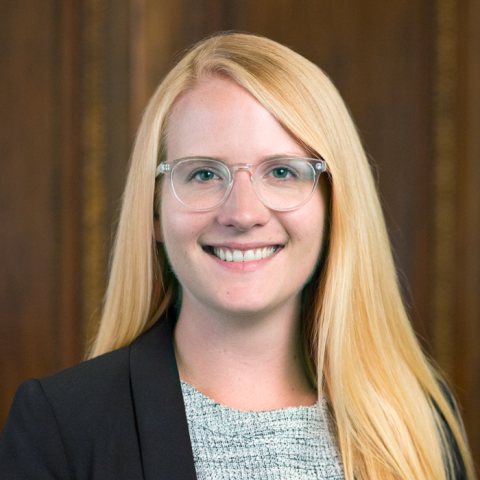“Do you want your teeth, or do you want your heart to continue beating? You’ve got to figure out which one and balance it out. Sometimes I’ve had to omit the eyes and the teeth.” This description highlights one of the many barriers to health care — in this case cost — reported by more than 100 relatively healthy, low-income adults in recent Commonwealth Fund–supported focus groups and individual interviews.
This post is the first in a “Listening to Low-Income Patients” series that will draw on this qualitative research to describe, in patients’ own words, different issues that impact their health such as quality of health care, community, and mental health and addiction. In this piece, we share low-income patients’ accounts of common challenges faced when trying to obtain care — the high cost of care, finding a convenient time to go to the doctor, poor experiences with care, and a lack of trust in the health care system — as well as patients’ recommended practical solutions.
A consultation costs between $200 to $500. You don’t have any money and you get very stressed if you have to pay for it. It is better to get used to the pains you have.
Affordability
The Affordable Care Act has made care more affordable for many lower-income patients over the past three years through cost-sharing reductions and tax credits on the health insurance marketplaces and through Medicaid expansion. However, 18 states have chosen not to expand Medicaid, leaving many people in a coverage gap, and many others who are eligible for subsidies or Medicaid remain uninsured. At the same time, trends in job-sponsored coverage show that those with employer coverage are facing higher health care costs, often in the form of high deductibles.
As a result, low-income patients with or without insurance coverage often forgo care because of cost. As an Atlanta man explained, “A consultation costs between $200 to $500. You don’t have any money and you get very stressed if you have to pay for it. It is better to get used to the pains you have.”
The high cost of seeing a health provider or filling a prescription can force low-income patients to make tough choices between their health and the financial well-being of their family. With multiple conflicting priorities, the patients we talked to said they often give precedence to housing or food before taking care of their health. As one woman from New York said, “A roof for our children is more important.”
Low-income patients say their worries about affordability are exacerbated by not knowing the cost of services in advance. For example, one man explained, “A while ago I started to feel like I was getting bronchitis. I called a few doctors that were within the coverage of my insurance and went to the closest one to my home. Before I went back to see the doctor I was told everything would be covered, but they ended up running some tests (without telling me those tests wouldn't be covered by my insurance) and I ended up paying several hundred dollars for antibiotics for a common cold!”
Time Away from Work and Other Responsibilities
Along with the cost of care, the patients we spoke to reported that taking time off work is a problem for them. Working low-income people, who often do not get paid sick leave, lose precious income when they take time off to go to the doctor.
Others have difficulty getting time off approved by supervisors or have uncertain work schedules that do not firm up with enough notice to plan a trip to the doctor. Even when they are able to wrangle time off work in advance, they still have difficulty scheduling an appointment with doctors that book up far in advance or do not offer appointments outside regular business hours. For example, one Los Angeles woman said, “I had two weeks of vacation so I said I am going to get a checkup. I called and they gave me an appointment in a month-and-a-half to two months. I did not get it because I had to work!”
In addition, even when patients manage to schedule an appointment, they say they will often have to wait for hours to see a provider, which can lead to more problems at work and further lost income.
Poor Experiences with Care and Distrust of Providers
The interviews revealed that many of these low-income patients have had poor experiences with care in the past and do not trust providers or traditional medicine to help them, leading them to forgo needed care. Several people questioned providers’ motives, calling health care professionals “pill-pushers” more interested in making money than getting to know or care for patients. “[My doctor is] very pill-happy. I said I was sad and anxious, she prescribed me four different things. I was like, ’I'm sober. I'm in recovery. I can't take Xanax.’ She was just pushing pills on me and I didn't feel like she took the time to get to know me.”
Some also doubted that the care provided by doctors will help them more than it will hurt them, citing concerns about side effects of medication. Others, who prefer alternative therapies, were unwilling to seek care from a provider that discredits or does not offer these treatments. “I think that Eastern medicine is often discounted as not effective,” said one person in Los Angeles. “If it was the way that people have received their medical treatments and is either dismissed or questioned, it can make people uncomfortable and reluctant to seek treatment elsewhere.”
Practical Solutions to Breaking Down Access Barriers
The 100-plus participants in our qualitative study provided several suggestions for improving their access to care. First, they want care itself to be more affordable, and providers to be upfront and transparent about what it will cost patients.
Second, we heard that patients want providers to offer appointments outside of regular business hours and to expand the use of e-visits and telehealth services to ensure they are able to get appointments quickly and conveniently. Finally, a lack of trust in health professionals was a consistent concern, which, according to our respondents, could be addressed if health providers listened to them, spent more time getting to know them, and were sensitive to their preferences. These recommendations from low-income patients are consistent with the evidence, which shows that greater affordability, availability of after-hours appointments, telehealth, and enhanced patient trust can significantly improve access to needed care.
This post is the first in a “Listening to Low-Income Patients” series that draws on qualitative research to describe, in patients’ own words, different issues that impact their health such as quality of health care, community, and mental health and addiction. Detailed follow-up interviews were conducted with patients.



